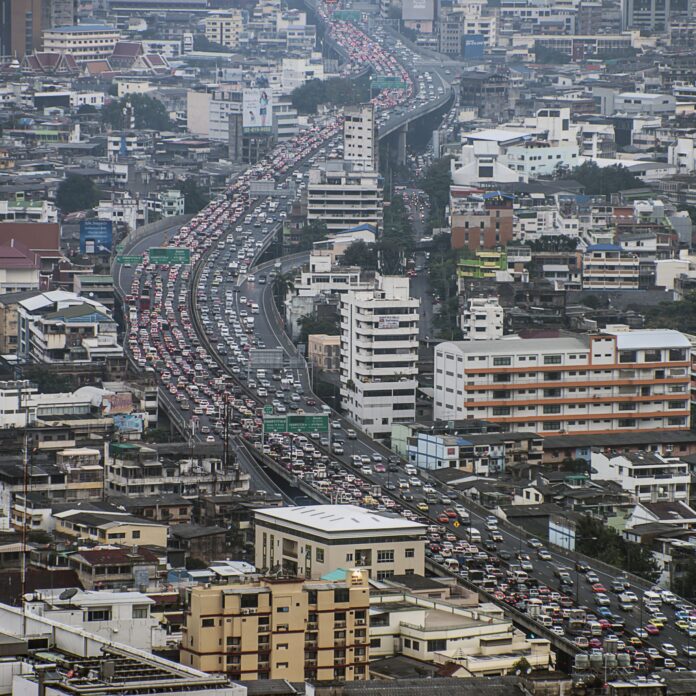Smart traffic systems could save commuters two to four days per year of time spent in traffic
In a new report, the GSMA projects the city of Bangkok could save some $1 billion per year by implementing intelligent transport systems common in so-called smart cities.
Researchers found that introducing intelligent transport systems would yield economic benefits equivalent to $1 billion each year through a combination of reducing traffic congestion and travel time, cutting harmful carbon dioxide emissions and helping avoid traffic accidents.
The GSMA report also said intelligent transport systems could “potentially result in long-term positive changes in commuter habits and encourage citizens to use safe and environmentally friendly ways of commuting.”
GSMA Spectrum Director for Asia Chris Zull said intelligent transportation systems, taken as a whole, can help push broad quality-of-life improvements.
“There is a growing recognition of the significant benefits ITS can have on the environment, in improving productivity, safety and overall quality of life,” he said. “ITS solutions have been successfully implemented around the world, particularly in developed countries, to address major transportation challenges. As mobile connectivity rates in Asia rise exponentially, dense metropolitan centers like Bangkok have a real opportunity to dramatically improve traffic flow, increase productivity, reduce vehicular pollution and even save lives.”
With a population of more than 6 million, Bangkok is no stranger to regular – and prolonged – traffic problems. In 2012 the BBC reported that there are some 5 million cars on Bangkok’s roads, which can support less than half of that amount of traffic.
BBC reporter Sirithep Vadrakchit said it’s routine for co-workers to arrive “up to four hours late. Once I got into a jam in downtown Bangkok, when I spent almost two hours moving less than a kilometer. Two or three weeks ago, traveling from Pathum Thani to central Bangkok, it took four and a half hours for a journey which usually takes less than an hour. I think the city should be more serious about public transport. People have better things to do than sit on the roads for hours every day.”
To that point, GSMA found that implementing ITS solutions in Bangkok could save the average commuter between two and four days each year that would have otherwise been spent in traffic. Furthermore: “ITS solutions could reduce the number of road accidents by up to 8,000 per year, possibly saving up to 100 lives or nearly a quarter of the annual road traffic deaths reported in Bangkok in 2013.”

